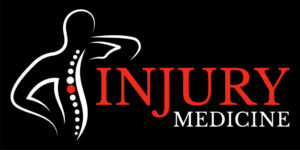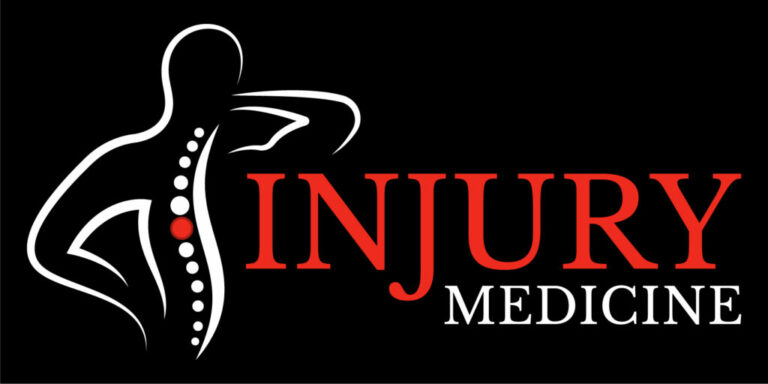Injections for chronic pain involve the use of medications, such as steroids or anesthetics, which are injected directly into the affected area to reduce inflammation and relieve pain. The type of injection used will depend on the location and type of pain you are experiencing.
Injections can be administered either in a doctor’s office or in a hospital setting, and are generally considered safe when performed by a qualified healthcare professional. Commonly treated areas include the neck, back, shoulders, knees, and hips.
It is important to note that injections may provide temporary relief and may not be a permanent solution for chronic pain. Your healthcare provider will work with you to determine the most appropriate course of treatment based on your individual needs.
If you are experiencing chronic pain, it is important to seek medical attention to determine the underlying cause and explore appropriate treatment options. You can speak with your primary care physician or seek out a specialist in pain management for further evaluation and treatment.
How Are Injections Used in Pain Management?
Injections are a non-surgical treatment option that can be used for both acute and chronic pain. They can be helpful in cases where other non-surgical options such as medications, physical therapy, or lifestyle modifications have been tried without success.
As you mentioned, injections can be used to deliver pain-relieving medications directly to the source of the pain, which can be more effective than oral medications. They can also be used to block pain signals from reaching the brain, either through creating a heat lesion or delivering a pain-relieving medication.
In addition, injections can be used as a diagnostic tool to help identify the underlying cause of the pain. For example, if an injection of a numbing medication into a specific joint or nerve provides significant pain relief, it can help confirm that this is the source of the pain.
It’s important to note that injections may not be effective for everyone, and they do carry some risks such as infection, bleeding, or nerve damage. Your healthcare provider can help determine if injections are an appropriate treatment option for your specific condition and provide guidance on any potential risks or complications.
What Are Some of the Types of Injuries or Conditions that Can Be Treated With Injections?
Over-the-counter pain medications and anti-inflammatory medications can provide relief for some individuals experiencing pain, but they are not always effective. Alternative approaches such as applying heat or ice to the affected area or using prescription pain medications may also be attempted.
However, if these methods fail to provide sustained relief, an injection in the affected area may be the next recommended course of action.
Here are some of the types of injuries or conditions that can be treated with injections:
- Neck Pain
- Hip Pain
- Shoulder Pain
- Back Pain
- Knee Pain
- Nerve Pain
- Sciatica
- Psoriatic Arthritis
- Osteoarthritis
- Rheumatoid Arthritis
- Bursitis
- Tendinitis
- Sports Injuries
- Gout
What Are the Different Types of Injections That Are Available at Injury Medicine?
At Injury Medicine in Anderson, SC, we offer a wide selection of injections for treating different kinds of pain, which include:
Radiofrequency Ablation
Radiofrequency ablation (RFA) is a non-surgical procedure that involves using radio waves to heat up a small area of nerve tissue, effectively disrupting the nerve’s ability to transmit pain signals to the brain. RFA is also sometimes referred to as rhizotomy.
Sphenopalatine Ganglion Block
While over-the-counter pain medications and anti-inflammatory medications can help alleviate pain for some, they may not be effective for everyone. Other approaches, such as using prescription pain medications or applying heat or ice to the affected area, may be attempted.
However, if these methods prove ineffective in providing long-term relief, the next step is often to consider an injection in the affected area.
Sphenopalatine Ganglion Block injection is also used to treat the following conditions:
- Migraine
- Atypical Facial Pain
- Nasal Contact Point Headache
- Temporomandibular Disorder
- Complex Regional Pain Syndrome (CRPS)
- Paroxysmal Hemicrania
- Herpes Zoster
- Trigeminal Neuralgia
Stellate Ganglion Block
The stellate ganglion block is a procedure that involves injecting a local anesthetic medication into the stellate ganglion, a collection of nerve cells located in the neck. This can help to alleviate pain, swelling, and other symptoms in the head, neck, and upper extremities that are caused by conditions such as complex regional pain syndrome (CRPS), postherpetic neuralgia, or phantom limb pain.
Nerve Block
A nerve block is a procedure in which a local anesthetic medication is injected into a targeted nerve or nerve group to alleviate pain. The goal of the injection is to interrupt or “block” pain signals from reaching the brain, which can provide temporary relief from pain and allow damaged nerves time to heal.
Nerve blocks may be used to treat a variety of pain conditions, including chronic pain, acute pain, and pain related to surgery or injury. They can be used in conjunction with other pain management techniques, such as physical therapy or medication, to provide more comprehensive pain relief.
Healthcare providers may use imaging guidance, such as fluoroscopy, ultrasound, or CT scan, to help guide the needle to the most suitable location for the injection. This can help ensure that the medication is delivered to the precise location where it is needed, maximizing its effectiveness and minimizing the risk of complications. The duration of pain relief from a nerve block can vary depending on the individual and the condition being treated.
Celiac Plexus Block
he celiac plexus block is a type of nerve block that involves injecting a local anesthetic medication into the celiac plexus, a bundle of nerves located in the abdomen that sends pain signals from the kidneys, liver, pancreas, spleen, gallbladder, and intestines to the brain.
The celiac plexus block can help to alleviate pain in patients with chronic pancreatitis or pancreatic cancer, as well as other conditions that cause abdominal pain. The injection prevents the plexus nerves from sending pain signals to the brain, providing temporary pain relief.
Celiac plexus blocks can be performed using different techniques, such as a transabdominal approach or a posterior approach through the back. Healthcare providers may use imaging guidance, such as fluoroscopy or CT scan, to ensure accurate placement of the needle and medication.
As with any medical procedure, there are risks and potential complications associated with celiac plexus blocks, which should be discussed with your healthcare provider. However, the procedure is generally considered safe and can provide significant pain relief for some patients.
Sciatic Nerve Block
A sciatic nerve block is a pain management technique that aims to disable the transmission of pain signals from damaged nerves. This is achieved by administering an injection of anesthesia around the sciatic nerve.
This procedure can be useful in blocking pain resulting from surgical interventions on the knee, foot, leg, or ankle, as well as for managing chronic pain issues in the lower extremities. By effectively interrupting the pain signals, the sciatic nerve block can provide relief from discomfort and promote healing.
Facet Blocks
Facet joints are located at the back of the posterior spinal column. They are similar to other joints in the body and can be affected by infection, arthritis, or other disorders. Bending and twisting spinal injuries can also cause facet joint irritation or damage resulting in pain.
The facet block procedure involves using imaging guidance to place a needle into the facet joint to deliver a local anesthetic or steroid. Facet blocks can be performed at one or multiple levels and on one or both sides of the spine.
Discography
Discography, or discogram, is a diagnostic test that uses X-rays to examine the intervertebral discs of the spine. The test involves injecting a special dye, called contrast material, into the center of one or more spinal discs, followed by X-rays or a CT scan to visualize the dye and assess the structure and function of the discs.
Discography is typically used to identify the source of chronic back pain in patients who have not responded to other diagnostic tests, such as MRI or CT scans. By pinpointing the specific discs that are causing pain, healthcare providers can determine the most appropriate treatment, which may include surgery, physical therapy, or other interventions.
Spinal Cord Stimulators
Spinal cord stimulators (SCS) function by interfering with the transmission of pain signals between the spinal cord and the brain. To achieve this, a neurotransmitter, similar in design to a pacemaker, is implanted beneath the skin via an epidural needle, which then delivers stimulation.
Thin, insulated wires, or leads, transmit the impulses from the device to the spinal cord. Once in place, mild electrical impulses are delivered near the spinal cord, disrupting the pain signals. As a result, the patient experiences a reduction in pain. SCS can be an effective pain management solution for individuals seeking relief from chronic pain.
Injections for Pain in Anderson Could Be Just What You Need!
Compared to more invasive options, such as surgery, injections offer a minimally invasive approach to pain management with fewer risks involved. Additionally, injections do not carry the risk of addiction, making them a favorable alternative to potentially addictive pain relief medications.
If you are experiencing chronic or acute pain that is impacting your quality of life, it is important to seek the advice of experienced physicians at Injury Medicine in Anderson, SC. Our team can provide guidance on your options for pain relief, including various types of injections, and determine if surgery is necessary for lasting relief.
To learn more about the potential benefits of injections for pain relief in Anderson, contact us today at 864-866-PAIN to schedule a consultation with our experienced physicians.


